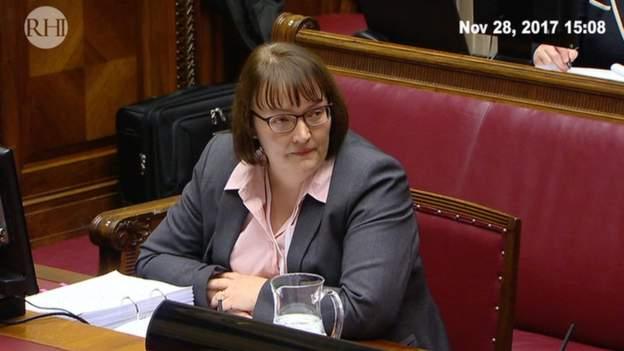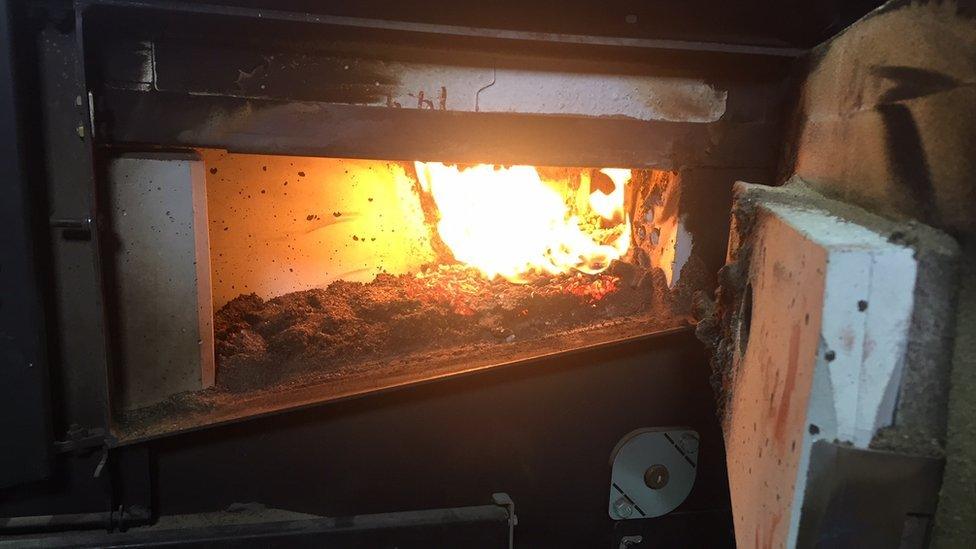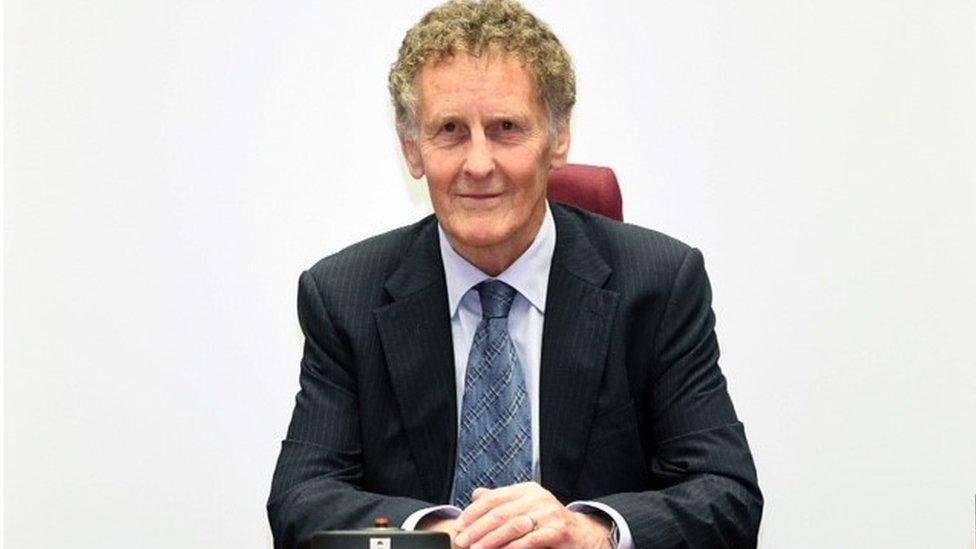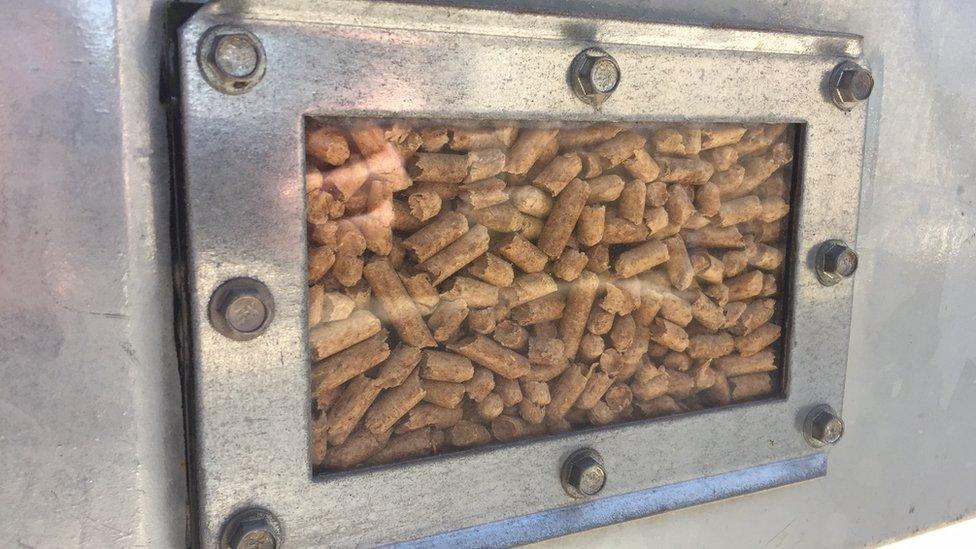RHI inquiry: First witness gives evidence to Stormont hearing
- Published

Alison Clydesdale was the first witness to the inquiry
The chair of Northern Ireland's Renewable Heat Incentive (RHI) inquiry has said he sees no evidence of a "senior hand" guiding the scheme.
Sir Patrick Coghlin said it was complex with a big budget, but there seemed to be no-one at senior level who tried to "get a grip" on it.
He was speaking as the first witness gave evidence to the Stormont hearing.
Alison Clydesdale was a mid-ranking official in the Department of Enterprise Trade and Investment.
She described how she and others tried to manage work around the introduction of RHI.
The inquiry was set up to investigate the circumstances surrounding the energy initiative after its costs spiralled.
The RHI scheme was an initiative offering financial incentives to encourage businesses to switch to using renewable fuels to generate heat. But critical flaws meant that its claimants could earn substantial returns, far greater than intended.
That came at the taxpayer's expense and the most recent estimate put the projected overspend at £700m over 20 years, up from an original figure of £490m.

The inquiry was set up in response to public concern about the scheme's huge projected overspend
The scandal generated significant public concern and the fallout surrounding it led to the collapse of Northern Ireland's devolved administration and a major political crisis that exists to this day.
Speaking at the inquiry on Tuesday, Sir Patrick said: "I see no senior hand at all. I see it being left to people who were doing their best at a lower level with a lack of communication and a lack of continuity."
Alison Clydesdale agreed that this was not an unfair assessment of the situation.

Sir Patrick Coghlin is chairing the RHI Inquiry, which is expected to last for several months
Sir Patrick was also highly critical of the decision not to treat the RHI scheme as a departmental project which would have guaranteed it a level of oversight.
He described it as a "clear and obvious case" for such treatment.

Many of the boilers on the RHI scheme create heat by burning wood pellets
On Tuesday, it emerged that a key document detailing potential risks in the scheme had not been on the internal civil service system.
It was drawn up by Peter Hutchinson, the man responsible for the day-to-day running of the scheme, before he left his post in 2014.
Ms Clydesdale confirmed that when she returned to the RHI team in 2016 and began reviewing relevant documentation, she did not find it.
Sir Patrick said this was despite the fact that it was the "one, if not the only detailed record" of what was going on as the scheme was running into budgetary trouble.
The inquiry into the Renewable Heat Incentive scheme opened in early November and is expected to last several months.
- Published7 November 2017

- Published23 October 2019

- Published7 November 2017
